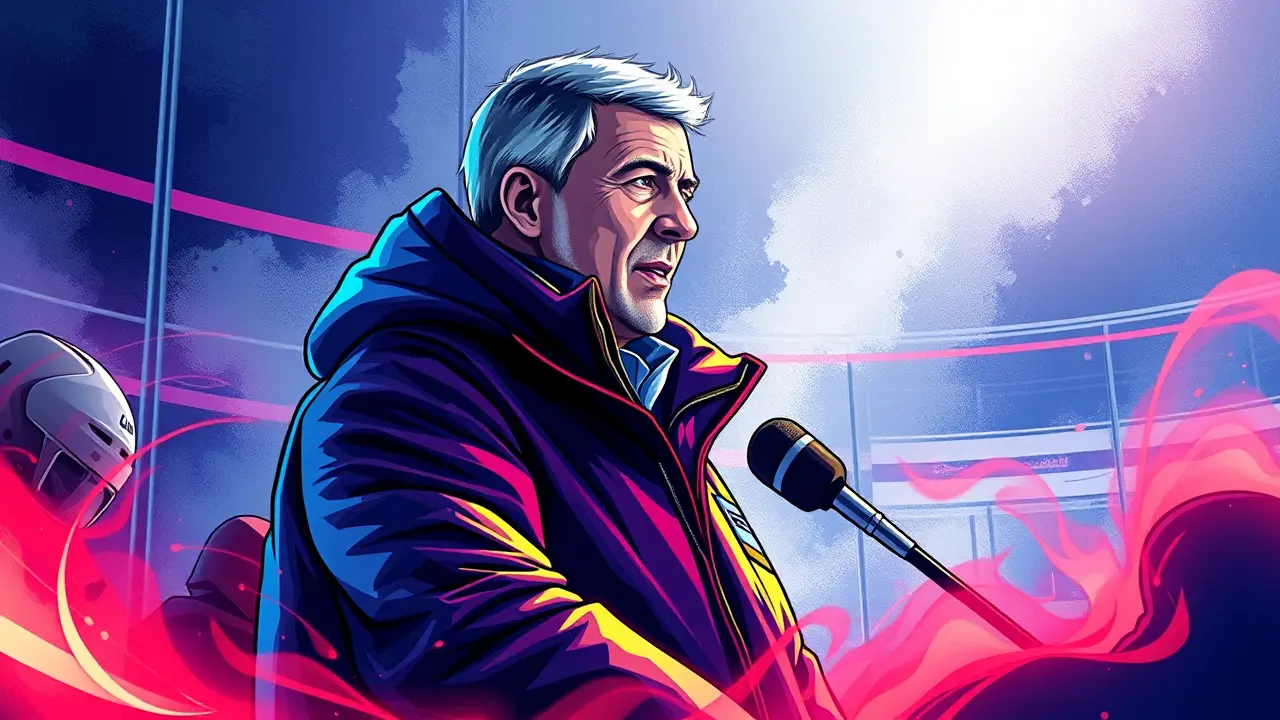Vladimir Krikunov: KHL Became Boring Without Rotenberg
The tectonic plates of the Kontinental Hockey League shifted dramatically this past June when SKA St. Petersburg, a perennial Goliath of Russian hockey, made the stunning decision to part ways with head coach Roman Rotenberg.The move sent shockwaves through the league, not merely for its sporting implications but for the removal of one of the sport's most polarizing and charismatic figures from its most prominent bench. Rotenberg, a man whose tenure was as much about his fiery presence and unapologetic ambition as it was about power plays and penalty kills, didn't remain a free agent for long, swiftly finding a new home within the coaching staff of Dynamo Moscow, setting up a fascinating subplot for the season.The reverberations of this decision are now being felt acutely, as voiced by HC Sochi's head coach Vladimir Krikunov in a recent, remarkably candid interview. When pressed on whether SKA's current dire straits—a five-game losing streak under the legendary Igor Larionov—could precipitate another coaching change, Krikunov offered a tepid vote of confidence, stating, 'No, of course not, everything will be normal!' Yet, his subsequent comments revealed a deeper, more profound sentiment about the league's character in Rotenberg's absence.'Without Roman, it's become somehow boring, you know,' Krikunov mused, searching for the right word before settling on the perfect descriptor offered by his interviewer: 'The zest. ' He affirmed this with a sigh, 'Yes! It's become bland, somehow bland.' This is more than a simple critique of a rival team's performance; it is a poignant observation on the nature of spectacle in professional sports. Roman Rotenberg was never just a coach; he was an event.His intensity on the bench, his willingness to engage in verbal sparring matches with officials and opposing coaches, and the sheer gravitational pull of his personality made every SKA game must-watch television, regardless of the score. He was the Jose Mourinho of the KHL, a figure whose press conferences could generate as many headlines as the games themselves.His approach divided opinion, but it guaranteed engagement, transforming routine regular-season contests into gripping narratives filled with drama and anticipation. In his absence, the league, according to Krikunov's assessment, has lost a layer of its competitive spice, becoming a more homogenized and perhaps less compelling product.This phenomenon speaks to a universal truth in sports: rivalries and personalities drive interest as much as, if not more than, pure athletic excellence. The NBA of the 1980s and 90s was defined by the larger-than-life personas of Magic Johnson, Larry Bird, and Michael Jordan.Football has its Jurgen Klopps and its Jose Mourinhos, managers whose very presence defines an era. Rotenberg, for all his critics, provided that for the KHL—a central character around whom storylines could be built.His move to Dynamo instantly elevates that club's profile and sets the stage for emotionally charged clashes against his former team, injecting a personal vendetta into the league's calendar. Krikunov's reluctance to prescribe a solution for SKA's woes—'This you need to be inside to answer this question.It's a different club, different players, everything is different'—highlights the complex, internal dynamics that outsiders can never fully grasp. A coaching change, especially one involving such a dominant personality, creates a vacuum that is difficult to fill.Larionov, a Hall of Fame player known as 'The Professor' for his cerebral approach to the game, represents a stark stylistic contrast. Where Rotenberg was fire, Larionov is ice.The transition for the players, many of whom were recruited and molded under Rotenberg's system and intensity, is undoubtedly challenging. It's a classic case of a new manager trying to impose a different philosophy, and the current losing streak suggests the process is painful.The broader question for the KHL's management is whether a league benefits more from the quiet consistency of technical mastery or the electrifying, if sometimes chaotic, energy of a magnetic personality. Krikunov's comments suggest a fear that the league has opted for the former at the cost of its soul.As the season progresses, all eyes will be on whether SKA can adapt and thrive under Larionov's calmer guidance, and whether Rotenberg can transplant his unique brand of hockey theater to Dynamo. The ultimate verdict on SKA's decision won't just be found in the win column, but in the buzz in the arenas, the intensity of the rivalries, and whether the KHL can rediscover the 'zest' that Vladimir Krikunov so keenly feels is missing.
It’s quiet here...Start the conversation by leaving the first comment.
© 2025 Outpoll Service LTD. All rights reserved.
